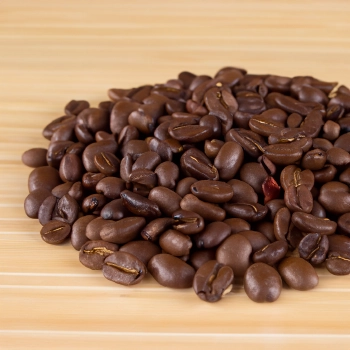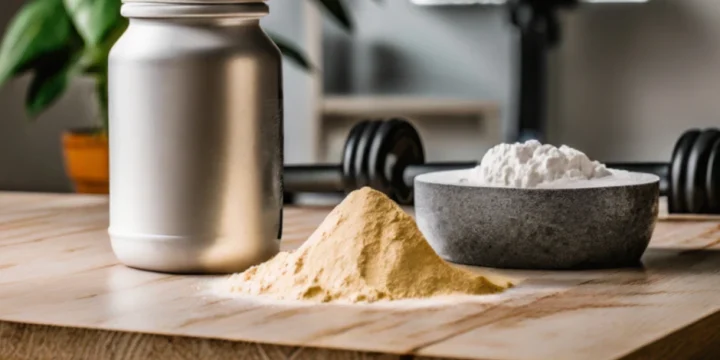Is there a better alternative for students to stay mentally focused when studying?
Since students are always on the lookout for ways to stay sharp, I teamed up with college-age gym-goers and consulted our dietitian to see if pre-workout supplements are better for all-night studying.
Before trying it out yourself, keep reading to discover the results of our investigation.
Quick Summary
- Pre-workout supplements can be used for studying as they contain caffeine, which boosts focus and energy levels.
- Some cognitive enhancers in pre-workouts that help you study include creatine, L-theanine, and L-tyrosine.
- Johns Hopkins University study showed participants taking 200 mg of caffeine had improved memory, better identifying images than those who didn't.
- I believe moderation is key. While pre-workouts can offer a boost, it's essential to ensure they don't disrupt sleep or cause jitters.
Can Pre-workouts Help With Studying?
Yes, pre-workouts can help with studying, and the best pre-workout supplements for that, contain natural ingredients like caffeine to boost energy levels and focus.
These supplements affect how our brain operates. They help us process information, focus, relax and sleep. That's why many students resort to caffeine-rich beverages during study sessions.
They also heighten alertness and cognitive functions, according to a National Library of Medicine report [1].
What Ingredients Help Study?
Nootropics, also known as “smart drugs” or cognitive enhancers, help you study and are popular ingredients in pre-workout supplements for focus.
They might effectively improve memory, thinking, and other mental functions, promoting mental focus during exercise [2].
But other components provide similar effects:
Caffeine

The National Library of Medicine mentions that people often use coffee for its caffeine, especially for all-nighters. I've used caffeine for long days. It activates the central nervous system, keeping me alert and energized [3].
Johns Hopkins University found caffeine boosts memory. Participants who took 200 mg caffeine tablets were better at identifying images than those who didn't [4].
Caffeine is chemically similar to adenosine but is an adenosine receptor antagonist.
Caffeine's effectiveness lies in its interaction with adenosine, a sleep-promoting chemical in the body. As adenosine levels rise, the brain gets ready to rest. Caffeine blocks these signals, stimulating the brain instead [5].
This leads to mixed signals of rest and activity in the brain, causing the pituitary gland to release adrenaline, triggering the fight-or-flight response, increasing alertness and energy.
Related Article: Caffeine-free Pre-workouts
Creatine
This non-essential amino acid is often found in pre-workout supplements because it promotes improved performance, especially in muscles.
We now know that creatine may reduce mental fatigue and is an effective cognitive enhancer [6].
L-Theanine

Healthline explains that L-theanine is an amino acid that promotes relaxation and increased focus and eases anxiety and stress. Combined with caffeine and creatine, it will significantly benefit studying [7].
L-Tyrosine
This is another amino acid that potentially improves memory and thinking skills.
The body produces L-tyrosine, obtained through a diet by consuming dairy, meat, eggs, fish, and beans [8]. Boosting memory means you retain the information you need going into an exam.
“L-theanine is an amino acid found in tea that can increase feelings of calmness and may be linked to increased creativity. Its effectiveness is even greater when combined with caffeine.”
- Erica Julson, MS, RDN, CLT
Adaptogens
Adaptogens, found in some pre-workouts, can potentially support cognitive functions and stress resilience.
There are three adaptogens that you should consider:
- Adaptogen basics: These natural herbs help the body resist physical and mental stressors.
- Rhodiola rosea: Known to reduce mental fatigue and improve cognitive functions.
- Ashwagandha: This herb can enhance memory and cognitive functions.
Pre-workouts and Sleep

Pre-workouts boost energy, stamina, muscle protein synthesis, and recovery, leading to more intense workouts. Intense exercise can promote better sleep, resulting in improved focus and concentration.
Key performance-enhancing ingredients in pre-workouts include:
- Beta-alanine
- Acetyl-L-carnitine
- Creatine
- L-citrulline-malate
- Sodium bicarbonate (baking soda)
- Branched-chain amino acids (BCAAs)
- Nitrate
Using pre-workouts on workout days can enhance performance, and on non-workout days, they offer mental benefits.
However, avoid late-day consumption, especially of those containing caffeine, as caffeine needs around 6 hours to metabolize, and late intake could disrupt sleep.
Downsides of Taking It For Cognitive Tasks

Pre-workout can affect each person differently, which the college students in our trial definitely confirmed. The group found the boost to energy levels quite appealing, but some reported feelings of jitteriness, likely caused by caffeine [8].
Others reported minor digestive issues and some bloating. Creatine can undoubtedly be the culprit here, along with caffeine and sodium bicarbonate.
FAQs
Will Pre-workout Keep You Awake?
Yes, pre-workout will keep you awake as the caffeine content in most of these supplements equals at least two or three cups of coffee.
Can You Take a Pre-workout before an Exam?
Yes, you can take a pre-workout before an exam, as taking a supplement with high caffeine content may increase alertness and improve focus due to caffeine’s ability to enhance brain function.
References:
- https://pubmed.ncbi.nlm.nih.gov/18006208/
- https://www.ncbi.nlm.nih.gov/pmc/articles/PMC5021479/
- https://www.ncbi.nlm.nih.gov/books/NBK209050/
- https://www.medicalnewstoday.com/articles/326822
- https://thebrain.mcgill.ca/flash/i/i_03/i_03_m/i_03_m_par/i_03_m_par_cafeine.html
- https://www.mayoclinic.org/drugs-supplements-creatine/art-20347591
- https://www.healthline.com/health/l-theanine
- https://www.healthline.com/nutrition/pre-workout-side-effects#
About The Author
You May Also Like






